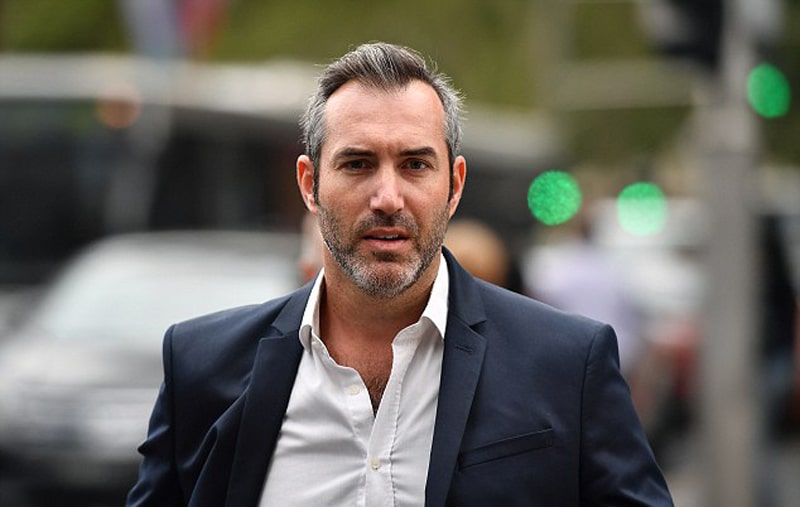Fetlife: A guide to the popular BDSM social media platform

The last few years have seen the BDSM, kinky and fetish community grow bigger, both online and in real life. Kink, fetish and BDSM practices often involve consensual violence made up of both psychological and physical submission, domination and masochism, which can explain our society’s scepticism towards the community.
Although it is true that BDSM isn’t for everyone, the spectrum of possibilities that it has to offer is very wide and varied, expanding the community’s reach to people who might be willing to experiment with the different aspects of their sexuality and their boundaries. The recent online presence of BDSM communities has actively allowed more and more people to approach and discover these practices.
But when it comes to these subcultures, Facebook might not be the best place to look for people to share your kinks with. That’s where Fetlife found its market.
What is Fetlife?
Fetlife.com (which also comes as an app) is “The Social Network for the BDSM, Fetish & Kinky Community,” as the website defines itself. And with over 8 million users and more than 40 million photos and videos shared, it seems as though the platform is everything but niche.
All that is required to enter Fetlife is for new users to create a free profile and select a gender, pick a sexual orientation out of a list that, unsurprisingly, counts 11 choices for each point, and choose the role that will define them within the platform—from dominant and kinkster to swinger and brat.
Users are then allowed to post images, videos, and write stories that include all sorts of extreme fantasies, some of which might be illegal within the ‘outside’ world. The BDSM community’s premise is based on consent and expressing your individual boundaries prior to each session, making it a safe zone where you can play and experiment. On Fetlife, these rules are, of course, very well known. But just like any other social media platform, (non-consensual) abuse, violence and gruesome stories have also been linked to the kink website.
Yingying Zhang’s murder
In 2017, the website made headlines after it was connected to the abduction and murder of Yingying Zhang, a visiting Chinese scholar at the University of Illinois who was brutally murdered by Brendt Christensen.
According to the authorities, before abducting Zhang, Christensen had visited one of Fetlife’s forums titled ‘Abduction 101′. Although this was the only link between the crime and the website, it was the start of Fetlife’s tarnished reputation.
Liam Gordon Murphy, The Wolf
More recently, other accusations were made against Liam Gordon Murphy, a Fetlifer nicknamed ‘The Wolf’ whose erotica stories which were published on the platform were particularly successful. In an article titled He Developed A Devoted BDSM Following Online. Then He Was Accused Of Rape. published this year in the HuffPost, the accuser, only known as Adrienne, shared her previous admiration for The Wolf and the influence he had as a Fetlife user: “On FetLife, people reveal fantasies that are often subversive, sometimes taboo and occasionally illegal. But The Wolf’s stories were different because he said they were true.”

After contacting him and offering to meet, Adrienne, who was 23 years old at the time and new to the platform, didn’t discuss any safe words but told The Wolf that what he was offering sounded frightening, to which he answered: “That’s kinda how I do things.”
The first night she met him, they had consensual sex, and they did so again on several other occasions. But on one afternoon in June 2015, Adrienne asked Murphy to stop, which he didn’t. Adrienne never spoke up about what happened until 2017. In October 2016, The Wolf was arrested for raping another young woman. He was charged in June 2017 of raping Adrienne, but his charges were ultimately dismissed in June 2018 due to the lack of evidence supporting the victims’ arguments.
How did Fetlife respond?
Just after Murphy was charged, Fetlife started deleting and prohibiting any content promoting non-consensual acts like rape or abductions and anything that would leave permanent markings such as deep cutting or killing. The platform also removed consensual non-consent from the website. But, at the same time, the site’s administrators were also censoring the several call-out pages that were asking users to share their accounts of abuse inflicted by other Fetlife users.
Conclusion
The BDSM world is far from being perfect, but among its complex structures and blurred boundaries, its community is keen to create a safe space where transparency and communication are pillars of its constitution. But just like most social media platforms, Fetlife isn’t free of toxic behaviours, online abuses turned physical, bullying, censorship and sexual violence.
Beyond the obvious individual responsibilities, it’s in the hands of the platform’s administrators as much as it’s in their power, to make sure a safe place is maintained and that rules are being followed. The same can and should be applied to any social media platform we use.




